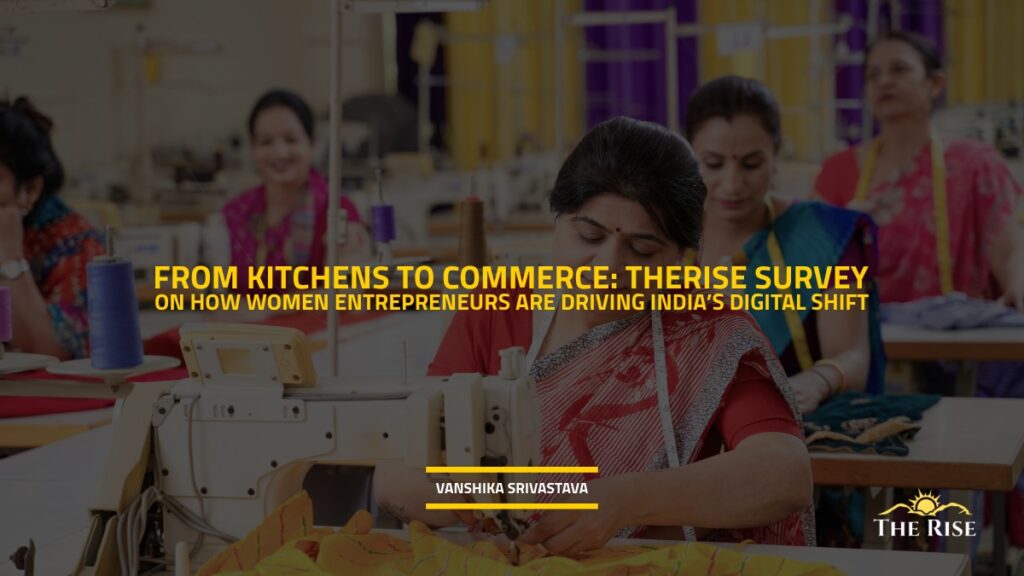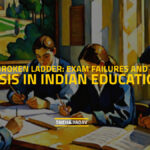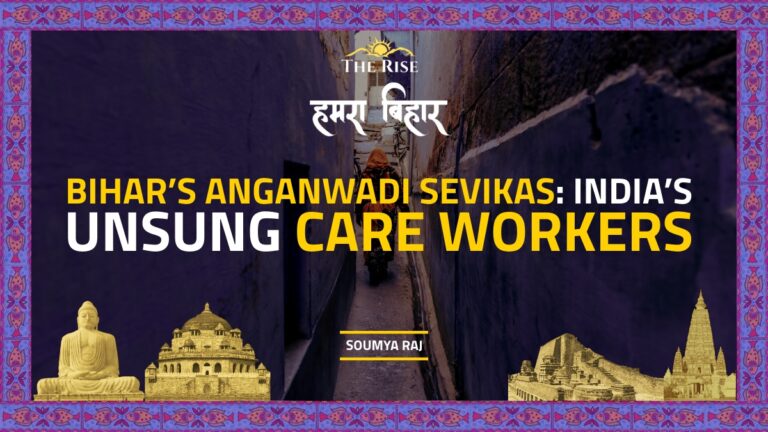Women continue to navigate challenges of time, limited training, and societal expectations. Yet, with digital tools and supportive ecosystems, they are turning their passions into enterprises from within their homes.Their journey from managing kitchens to managing commerce is more than just an economic shift.
In the evolving landscape of India’s economy, a silent transformation is unfolding- led by millions of homeworkers, particularly women, who are rewriting their economic identities. Traditionally confined to kitchens and domestic responsibilities, these women are now leveraging digital platforms to convert their household skills into viable commercial ventures.
Home-based workers have long formed the backbone of India’s informal economy. Whether it’s rolling papads, making pickles, or sewing clothes, these women have contributed significantly—albeit invisibly to the economic fabric of the country. Despite their consistent efforts, they have often remained unrecognized, underpaid, and outside the purview of formal financial systems.
Also Read: From Manusmriti to Bharatiya Nyaya Sanhita: What Ancient Laws Teach Us About Justice for Women
In recent years, though, things have started to shift. Women who were once limited to their homes are now stepping into marketplaces, connecting with customers, and building independent identities, all thanks to digital platforms.
“Looking after the house and home garden is a full-time unpaid job, but now I know my time has value,” said Shruti Shankar Srivastava, a homemaker in her 50s who runs her business on Meesho and Amazon.
These platforms, which range from YouTube educators to Instagram boutique owners and WhatsApp resellers, are not only providing business possibilities but are also redefining what empowerment means. For many women, it goes beyond just finding their voice and earning money; it’s about rewriting their place in society.
The article is an attempt to showcase how people who work from home are negotiating the transition from domestic responsibilities to business ownership, frequently striking a balance between cultural norms and entrepreneurial goals.
Digital bazaar
Every Digi-preneur has their own story that goes beyond money. It brings dignity, confidence, and independence. Even the smallest step can redefine their purpose and role in life. Many respondents said their business brought ‘slight to significant’ improvements in their lifestyle and boosted their self-esteem.
“Homework” was always unpaid, but now I feel like a professional, even if I am sitting in my kitchen,” said Shruti. Her words capture the essence of India’s silent economic revolution—a journey that begins at home but extends into the limitless digital marketplace.
And Shruti is not alone. Across the country, digitalization is rewriting how markets and entrepreneurship work. In big cities, Instagram boutiques and the Facebook marketplace are buzzing with new ventures, while in small towns, women often start by catering to their neighbourhoods.
Platforms like Meesho and WhatsApp help them cross these boundaries. They turn local credibility into wider opportunities, giving countless women the chance to be seen, heard, and valued. According to a survey conducted by TheRise, more than 30 percent of these entrepreneurs now rely on social media to sell their products—a figure that reflects the scale of this transformation.

The Double Shift: Homes and Hustles
Across India, more women are stepping into entrepreneurship from within their homes, stitching together businesses while balancing household responsibilities. Their journeys are marked by resilience, but also by contrasting realities, while some thrive with family support, others face resistance and doubt.
“I feel lucky as my family offers full support in deliveries and promotions,” said Saudamini, an interior decorator. who manages her business efficiently while still devoting 4–6 hours each day towards her domestic responsibilities. “Without them, I couldn’t have managed,” she further added.
Although Saudamini is fortunate to have family support, many people do not. Take Ankita, for instance. She poured her heart into a small crochet business, only to be dismissed by her own family: “This will not work; it’s seasonal, and the designs are outdated.” With no one willing to guide or encourage her, she was left to struggle on her own.
This is a story familiar to many women. They carry the double burden, endless hours of unpaid domestic work on one side, and the daunting task of building a business on the other. Society has long mocked housewives, branding them as “too old” to learn new skills. The reality is stark: women still devote nearly 20% of their daily time to household responsibilities, while men contribute just 2.6%, according to a survey conducted by TheRise.
And yet, against these odds, many of these women defy that stereotype. They step into entrepreneurship without any formal training, relying instead on self-learning—watching videos, following trends, and experimenting in the real world. More than 70% of these digi-preneurs have expanded their businesses through self-learning alone, according to the survey,
Deepa Sadhwani, who runs a clothing business, admits to feeling proud that she is “still learning”. Her only mantra is “do what you want, no matter what others think. Be happy and make others happy.”

Digital Hurdles
“But managing online is difficult,” said Nabiha Fatima, working as an online dietician. For her, struggles lie in the navigation of digital complexity. Her unstable income is one of her main problems. Her income is based on the number of clients she receives each month, as opposed to traditional occupations with a set salary. Her income is frequently erratic due to seasonal variations in demand and customer cancellations, making financial planning challenging.
The lack of social security benefits is another urgent issue. Digital entrepreneurs like Nabiha lose out on health insurance, maternity benefits, and pension plans that salaried employees receive, as they are not legally recognised under labour regulations. In the event of an emergency or health problem, Nabiha is therefore completely dependent on her personal savings.
Her stress is further heightened by frequent payment difficulties. Despite many clients preferring online transactions, her income is often delayed by unsuccessful UPI transfers, late payments, and overseas transactions. At times, clients disappear after obtaining the diet plan, and entrepreneurs have little recourse to recover their money due to unclear legal procedures.
Regulatory limitations add to this uncertainty. For internet dieticians, there is no clear structure for certifications, pricing, or grievance redressal. This not only exposes Nabiha to competition from unskilled workers offering substandard services but also undermines client trust, ultimately affecting both her credibility and income.
It’s not only women, but men too are harnessing digital tools to grow their business. Dr. Virendra Mehrotra, with a background in medical research, chose formal training to structure his work. While his income hasn’t changed drastically, he values the exposure and professional networks gained through platforms like Instagram and Facebook.
Large-scale initiatives are also reshaping the landscape. Internet Saathi, a partnership between Google, Intel, and Tata Trusts, has promoted digital literacy among 17 million rural women. NABARD’s EShakti project has digitalised 12.74 lakh SHGs, covering 146 lakh women across 1.73 lakh villages, while Maharashtra’s MAVIM has empowered thousands of rural women through financial services, self-help groups, and capacity-building efforts.
Together, these stories reflect resilience, adaptability, and ambition—cutting across age groups, professions, and geographies. Women face challenges like time constraints, lack of training, and societal expectations. But with digital tools and a supportive environment, these women as entrepreneurs are rewriting their passion from home. Their journey from managing kitchens to managing commerce is more than an economic shift, but a cultural transformation—one that is quietly redefining the meaning of work, dignity, and independence in India.
Vanshika Srivastava is an intern under TRIP
Mentored and Edited by Sneha Yadav







































































